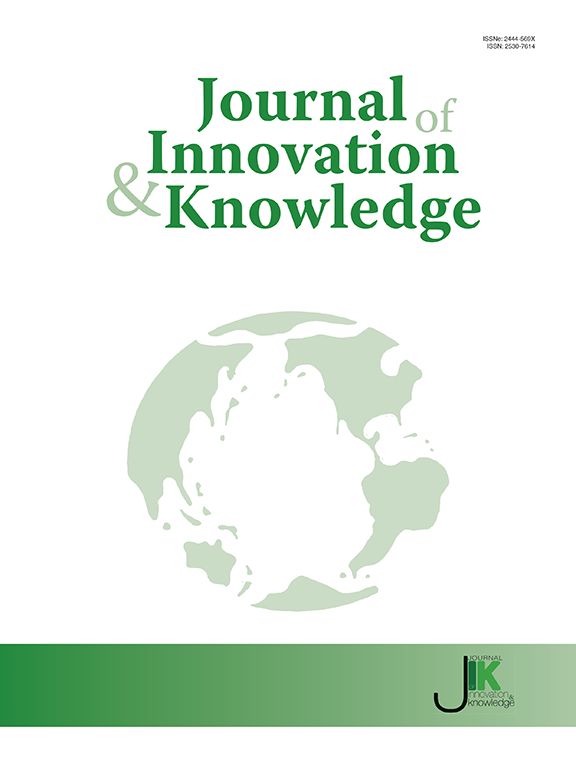The Journal of Innovation and Knowledge (JIK) focuses on how we gain knowledge through innovation and how knowledge encourages new forms of innovation. Not all innovation leads to knowledge. Only enduring innovation that can be generalized across multiple fields creates theory and knowledge. JIK welcomes papers on innovations that improve the quality of knowledge or that can be used to develop knowledge. Innovation is a broad concept, covering innovation processes, structures, outcomes, antecedents, and behaviors at the organizational level in the private and public sectors as well as at the individual, national, and professional levels. JIK articles explore knowledge-related changes that introduce or encourage innovation to promote best practices within society.
JIK provides an outlet for high-quality studies that have undergone double-blind peer review. In doing so, JIK ensures that such studies reach a global readership of scholars, consultants, practitioners, international leaders, and policymakers who recognize the importance of innovation and knowledge as economic drivers and who base their decisions on new ideas and findings in innovation and knowledge.
JIK publishes content in the form of theoretical articles, empirical studies employing quantitative or qualitative methods, practice-oriented papers, teaching-oriented papers, case studies, book reviews, conference reports, short articles on current trends in science and society, abstracts of recent innovation and knowledge PhDs, and shorter opinion-based and review articles, commentaries, and debates. JIK publishes state-of-the-art research on emerging topics in the world of innovation and knowledge and appeals to a broad readership. The editors welcome suggestions for special issue topics. JIK articles should demonstrate contextual differences, while highlighting lessons for the wider audience.
In sum, JIK is an interdisciplinary journal devoted to advancing theoretical and practical innovations and knowledge in a range of fields, including Economics, Business and Management, Engineering, Science, and Education. JIK has a broad scope to the following areas:
1. Innovation (including but not limited to: open innovation, innovation adoption and diffusion, organizational behavior and innovation, creativity, improvisation, and individual innovation, innovation in teams and groups, institutional and social innovation, consequences of innovation, critical approaches to innovation or innovation alliances and networks) in relation to knowledge, and vice versa.
2. Knowledge patterns in relation to innovation.
3. Knowledge-related changes that introduce innovations and best practices in society.
4. Globalization in innovation and knowledge.
5. Innovation policies and practices that lead to knowledge.
6. Cross-cultural case studies in knowledge and innovation.
7. New practical models and paradigms for understanding and fostering innovation and knowledge.
8. Knowledge and innovation derived from data.
9. Information systems in knowledge and innovation.
10. Knowledge and innovation in organizations and their behaviors.
11. Knowledge- and innovation-based systems, products, and processes.
12. Issues that affect the developers of education systems and educators who implement and manage innovations and knowledge.
13. Ethics in knowledge and innovation.
14. Knowledge and innovation transfer.
15. Quality in knowledge and innovation.




 Submission deadline 30 de November de 2025
Submission deadline 30 de November de 2025